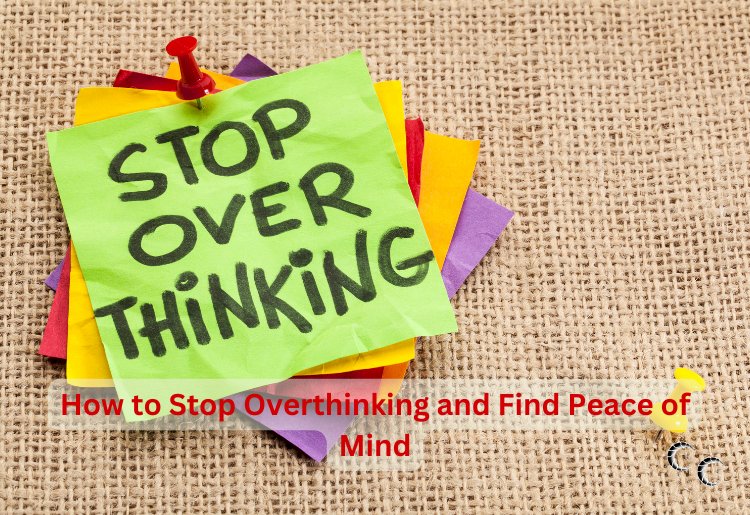How to Stop Overthinking and Find Peace of Mind

Overthinking can be a relentless cycle, draining your mental energy and making it hard to focus on the present. Breaking free from these loops is essential for mental clarity and peace of mind. Here are actionable tips to help you regain control of your thoughts and cultivate a calmer mindset.
Recognizing Overthinking
The first step to overcoming overthinking is acknowledging when it’s happening. Overthinking often manifests as:
- Constantly replaying past events: Dwelling on mistakes or things you can’t change.
- Worrying about the future: Obsessing over potential outcomes or what-ifs.
- Struggling to make decisions: Feeling paralyzed by too many options or overanalyzing the consequences.
When you notice these patterns, it’s a signal to pause and reset your thought process.
Tips to Break Free from Overthinking
1. Practice Mindfulness
Mindfulness is the art of staying present in the moment, which can disrupt overthinking patterns.
- Focus on your breath, sensations, or surroundings.
- Try guided meditations or use mindfulness apps to center yourself.
Mindfulness helps ground you in the present, reducing the power of intrusive thoughts.
2. Set a Time Limit for Worrying
Allow yourself a specific amount of time to think about a problem—10 to 15 minutes, for example.
- After the time is up, redirect your focus to an activity you enjoy or a task at hand.
This strategy prevents endless rumination and encourages productive thinking.
3. Challenge Negative Thoughts
Overthinking often stems from distorted or negative thought patterns.
- Ask yourself: Is this thought based on facts or assumptions?
- Replace catastrophic thinking with balanced perspectives.
For example, instead of “I’ll fail completely,” think, “I might face challenges, but I can handle them.”
4. Engage in Physical Activity
Exercise is a powerful way to disrupt overthinking and boost mental clarity.
- Go for a walk, try yoga, or hit the gym.
- Physical activity releases endorphins, which improve mood and reduce stress.
Movement helps shift your focus from your thoughts to your body.
5. Limit Information Overload
Overthinking can be fueled by too much information or too many options.
- Narrow your choices when making decisions.
- Take breaks from social media and constant news consumption.
Simplifying your inputs helps prevent analysis paralysis.
6. Write It Down
Journaling is a therapeutic way to release thoughts and gain perspective.
- Write about what’s bothering you and explore potential solutions.
- Reflect on patterns in your overthinking to address underlying triggers.
Externalizing your thoughts can make them feel less overwhelming.
7. Focus on What You Can Control
Overthinking often involves worrying about things outside your influence.
- Identify what you can change and take small, actionable steps.
- Let go of what’s beyond your control by accepting uncertainty as part of life.
Shifting your attention to your sphere of influence reduces unnecessary mental clutter.
8. Practice Self-Compassion
Be kind to yourself when you notice overthinking creeping in.
- Avoid harsh self-criticism for struggling with your thoughts.
- Remind yourself that everyone overthinks at times.
Self-compassion fosters resilience and helps you refocus on solutions rather than problems.
Building Long-Term Habits for Mental Clarity
- Create a Routine
Structure your day to include activities that reduce overthinking, such as exercise, hobbies, or relaxation techniques.
- Prioritize Sleep
A well-rested mind is better equipped to handle stress and avoid spiraling thoughts.
- Seek Professional Support
If overthinking significantly impacts your quality of life, consider talking to a therapist. Cognitive-behavioral therapy (CBT) is particularly effective for addressing thought patterns.
Conclusion
Breaking free from overthinking is a gradual process that requires patience and practice. By implementing these tips and prioritizing habits that promote mental clarity, you can regain control of your thoughts and find peace of mind. Remember, the goal isn’t to eliminate thinking altogether but to create a healthier relationship with your mind.






























